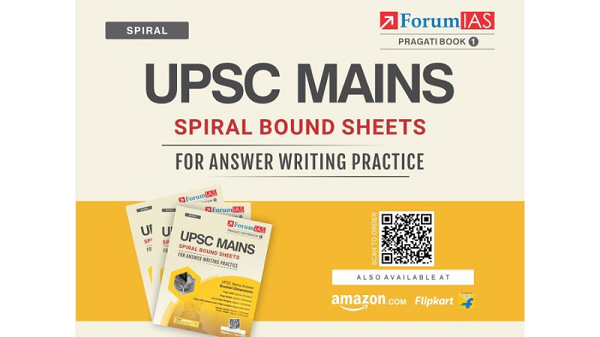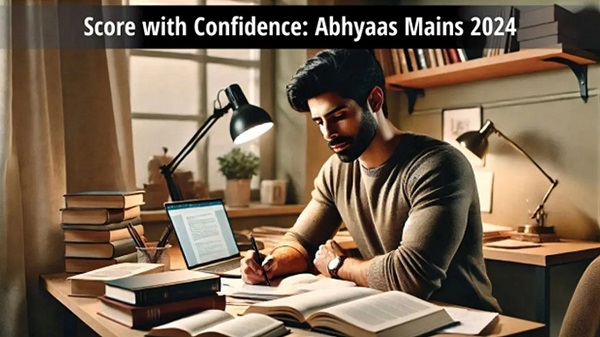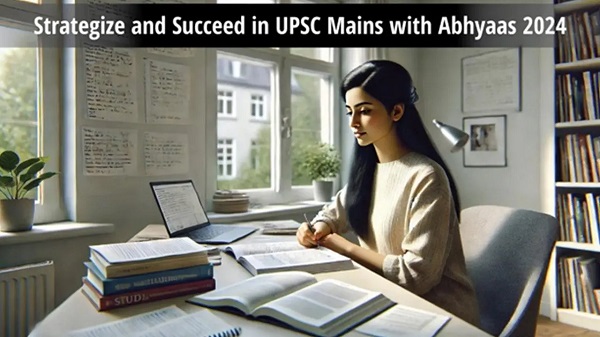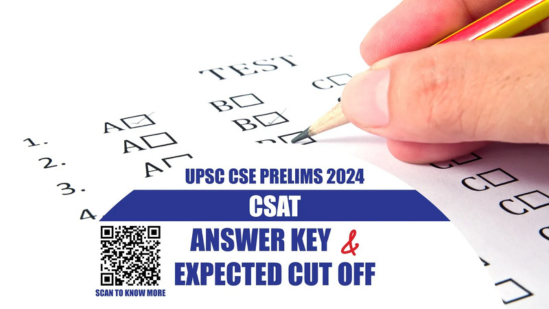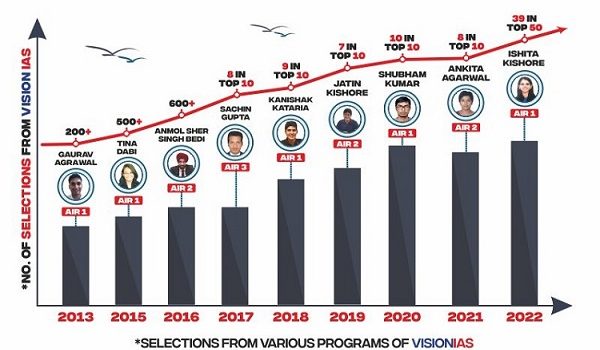The Union Public Service Commission (UPSC) conducts its annual Civil Services Examination (CSE) to identify and select candidates who would go on to play a central role in the development of the country. To carry out the varied roles and responsibilities in the public service effectively, Civil Servants are required to possess certain skills and abilities which are assessed through the Essay Paper of the Mains Examination.
The Significance of Essay Writing in the UPSC Examination
Through the Essay Paper, the UPSC peaks into the knowledge and interest of the aspirant over a variety of topics. Additionally, it evaluates an aspirants’ analytical skills, articulation of thoughts and expression of ideas in a coherent and logical manner. In other words, the ability to construct and weave a narrative around an issue in an engrossing and thoughtful manner is assessed.
Two Categories of Essays
A careful analysis of the Previous Year Questions reveals that Essay topics in this Paper can be broadly categorized into Information-based essays and Philosophical essays The Information-based essays primarily rely on the knowledge-related aspect of the essay topic that includes facts, data, evidence, etc. Whereas, Philosophical essays deal with abstract topics and ideas with diverse interpretations.
Therefore, aspirants preparing for Essay Paper should be comfortable dealing with both types of essays, especially the Philosophical essay topics which have been predominantly asked by UPSC in the recent past.
Beginning the Essay Writing
Essay is a work of non-fiction prose interwoven around a subject or topic in the form of arguments, its analysis, discussion, and solutions. The essence of the essay lies in its structure and flow. A well-structured essay is like a carefully designed building having a robust foundation and a good architecture. The structure of an essay essentially constitutes an Introduction, the Body and the Conclusion.
Introduction is like a doorway to the essay and must highlight the relevance of the essay, whereas body forms the core of an essay which provides scope to the writer to discuss the theme of the essay over multiple dimensions along with its limited elaboration. Conclusion gives a sense of completion to the essay through a closure statement. Here, one can give practical solutions, both short term and long term, to the issues highlighted in the thesis statement.
Choosing the Right Topic
Effective essay writing starts with choosing the right topic and its correct understanding. One should not simply opt for a topic because of its familiarity and it seems exciting. It should be based on a good understanding of the topic with adequate content stock. Therefore, a significant amount of time should be devoted to brainstorming ideas for the essay topic before actually beginning with the essay writing.
Brainstorming for Ideas
Brainstorming aids in idea generation by exploring various aspects of the topic. It consolidates related ideas for easy reference, not only for the main essay content but also for crafting diverse essay introductions and conclusions.
Deliberating Upon Introduction
Depending on the essence of the essay topic, it’s pivotal for an aspirant to thoughtfully choose the type of introduction that resonates with the theme. A compelling introduction can be anchored on references to notable personalities, insightful quotations, evocative anecdotes, or engaging narrations. The goal is to craft an introduction that not only aligns with the essay’s theme but also captivates the reader’s interest right from the outset, setting the tone for the subsequent discussion.
Body: The Most Substantive Part of the Essay
The body is the most substantive part of the Essay that reflects a multitude of qualities including multidimensional thinking, analytical ability, time management skills, among others. The explanations provided in this section should be diverse and can come from various sectors such as Social, Political, Historical, Economic, Cultural, Environmental, Ethical, etc. depending on the subject matter of the Essay.
Alternatively, it can have temporal dimensions such as Ancient, Medieval, Modern, Post-Independence, Post-LPG, Contemporary, etc. Prospects, issues, challenges, and solutions, wherever present should be explored.
The guiding principle while providing these arguments is that they should conform to the constitutional, legal, ethical, moral, and cultural mores of the society. They should further be well-substantiated with suitable examples, wherever possible.
Ultimately a Conclusion
The conclusion is crucial, as it summarizes key points, reinforces the thesis, and leaves a lasting impact, enhancing the essay’s effectiveness. Impactful conclusions can be provided in different manners by using quotations, stories, poems, etc. depending on the theme and underlying idea of the topic. Conclusions can also be prescriptive in nature while trying to address some issue or challenges. However, it is pertinent to note that they should be practical, have an optimistic undertone and provide forward looking visions. A coherence in the whole essay can also be achieved by adopting a cyclic approach by linking the conclusion to the introduction.
Balancing Substance and Style Through Presentation
Crafting a strong essay demands a balance between content and style. Hence, the significance of presentation methods should not be underestimated. Smart presentation improves the lucidity and effectiveness of arguments, thus facilitating a more efficient transmission of ideas. Further, it not only captivates the reader but also imparts a seamless logical structure and enhances the essay’s clarity and coherence.
Learning from the Insights of Toppers
Toppers, who have excelled in the exam in previous years, highlighted the importance of various presentation tools in adding more value and impact to the essay. An analysis of their answer scripts reveals effective use of headings & subheadings, simple and concise language, judicious use of diagrams, content highlighting techniques, and small paragraph, among others that add more value and voice to the content.
Right Feedback and Continuous Improvement
Applying the conventional wisdom and toppers insights into developing and improving the essay writing skills requires regular and continuous practice. Essay writing skills can further be honed when the practice is supplemented by valuable feedback from mentors, teachers and peers. Quality and constructive feedback is like a mirror reflecting strengths and areas of improvement ultimately paving the path to enhancement of essay writing skills.
Analyzing the Trend and Perspectives
Careful analysis of trends and patterns of the essay topics in previous year papers is crucial. By analyzing the previous year’s essay papers, one can obtain valuable insights into the topics, themes and perspectives asked in the essay paper. Continuous analysis and practice of the previous year’s topic facilitates targeted preparation, time management and greater sense of exam readiness.
The Journey of essay writing is not just a test of one’s writing prowess but an evaluation of one’s capacity to think critically and express oneself with clarity. Let the essay be your canvas, and the words your brush, painting a portrait of your intellect, ideas and convictions. In doing so, one not only prepares for an examination but also embarks upon intellectual exploration and self-expression.
Click Link for Instant Personalized Mentoring: https://bit.ly/3SeiQW5
Or Call us at: 8468022022, 9019066066


